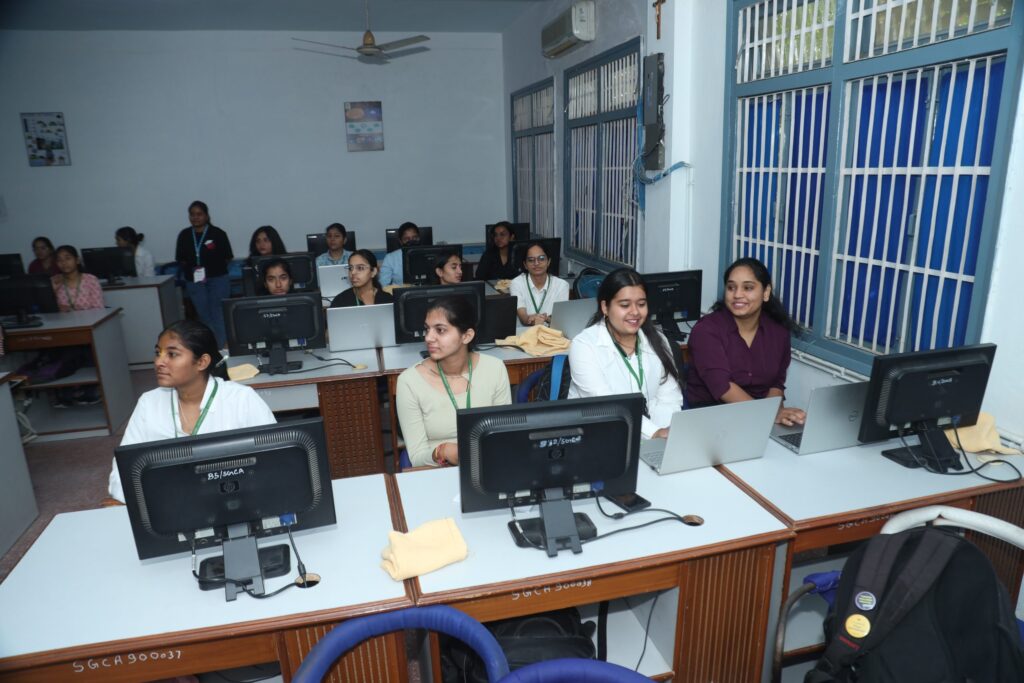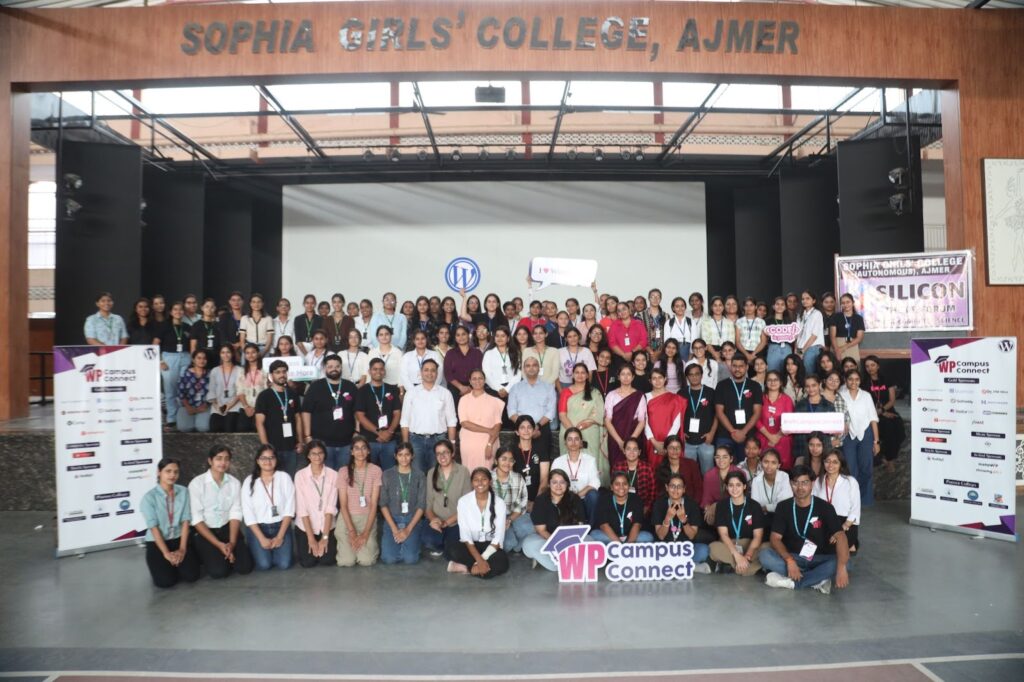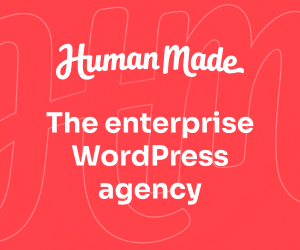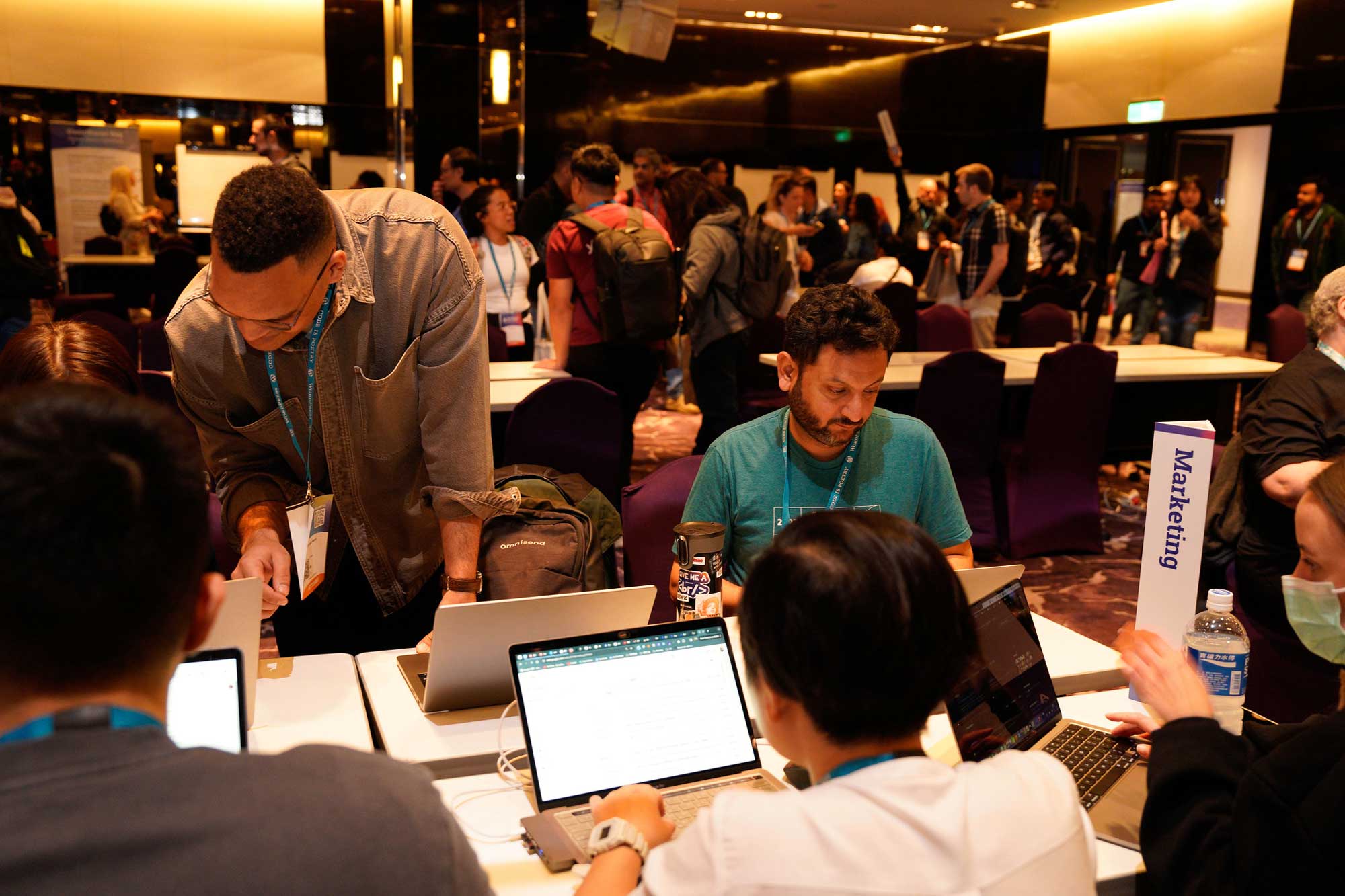For years, Anand Upadhyay had been trying to grow the WordPress community in Ajmer, a small city in northwestern India. He and his wife, Pooja Derashri, started the local meetup in 2017 and hosted events. But the group never quite grew beyond the same handful of people who kept showing up. New, younger faces were rare—and when they did appear, they often didn’t stay.
At WordCamps, Anand saw a similar story playing out. Students came curious to learn, drawn in by the energy of the open source community, but the programming wasn’t for them. Most sessions were pitched at professionals — developers, designers, marketers already working with WordPress. Beginners, especially students who had never heard of WordPress before, were left out.
So in October 2024, Anand decided to flip the script. If WordPress wanted to reach students, he reasoned, why not meet them where they were? With a volunteer team of 10, he brought a series of free seminars and workshops directly to four college campuses in Ajmer. They called it WP Campus Connect.

The idea was simple: introduce students to WordPress in a way that felt accessible, practical, and welcoming. And it worked. More than 370 students took part—many of them hearing about WordPress for the first time. When the next Ajmer WordPress meetup rolled around, a record number of new members showed up.
Just months later, the program has a new name — WordPress Campus Connect — and has been adopted as an official WordPress event series, with the same official status as WordCamps and Contributor Day. Pilots are already underway in Europe, and interest is growing in Asia and Latin America.
“Bringing younger people into the WordPress project isn’t just important, it’s essential,” says WordPress Executive Director Mary Hubbard. “That means creating real, practical opportunities to learn, build, and lead. WordPress Campus Connect came from that belief.”
A grassroots model that worked
Each event in the Ajmer pilot followed a two-part format. First, a 90-minute seminar introduced students to WordPress, its career potential, and what to expect if they attended a workshop. Then, over four weekends, the team ran 5–6 hour workshops, one at each college, helping students build their first websites.

The workshops were hands-on and tightly coordinated. “It wasn’t about trying to teach everything,” says Anand. “It was about helping them feel like they’d accomplished something—that they could build something real.” Students worked through a sample site that included a homepage, blog, and contact form. Images and assets were prepared in advance to help speed up the workshops.

Anand and his team adapted to each college’s infrastructure, sometimes running single-room workshops with all participants, other times splitting into smaller groups. In cases where installing WordPress locally wasn’t possible, they used InstaWP to provide instant, browser-based sandbox sites.
To maintain quality, each workshop was capped at 100 students. The team approached six colleges, with four coming on board. “We weren’t asking for funding or resources,” Anand explains. “Just space, basic infrastructure, and an openness to giving their students something new.”

From students to community members
The results were immediate and longer-lasting than expected. At the next Ajmer WordPress meetup, more than 50 students from the workshops turned up, many for the first time. “They weren’t just attending,” Anand says. “They were actively contributing ideas and asking what more they could do.”
So Anand and his team launched a website challenge in the weeks following the workshops, inviting students to build their own sites—either solo or in teams. Prizes were donated by hosting companies. Some participants built sites for local businesses. Others interviewed shop owners in their neighborhoods and designed mock sites based on real needs.
To keep the momentum going, two scholarships were awarded to students to help them attend WordCamp Ahmedabad, one of the largest WordPress events in India. “We wanted them to see the bigger picture of what WordPress can be,” Anand says.
He also presented a talk about the experience, Empowering Students and Building Community: The WP Campus Connect Experience, at WordCamp Delhi in December 2024. By then, he was already thinking about how to take the program further.
Becoming an official WordPress event series
As word spread, interest grew. Meetup organizers from across India began reaching out to Anand, eager to run similar events in their own communities.
Sensing its broader potential, Anand reached out to Mary earlier this year to propose turning Campus Connect into a formal WordPress event series. She was immediately on board. “It’s been incredible to watch people like Anand take the idea and run with it,” she says. “The grassroots story is amazing. It’s exactly what I love to see—local leadership, global support, and personal impact.”
Mary brought on Destiny Kanno, an Automattic-sponsored contributor, to help coordinate and operationalize what Anand and his team had created. The initiative quickly gained traction: A new channel in WordPress Slack, #campusconnect, was launched on May 1, and the renamed WordPress Campus Connect program was announced as an official WordPress event series on May 7.
Since then, contributors have built out the foundation for the program: a new landing page, application forms for organizers and sponsors, a pitch deck for colleges, and templated materials for student seminars. A call for designers to help create an official logo went out in early May. While Kanno helps lead the global rollout, Anand remains focused on scaling efforts across India.
“There’s a genuine excitement,” says Anand. “People want to help. They want to run events. They want to build this together.”
“The goal is to create a framework anyone can use,” adds Mary. “Locally relevant, globally connected, and grounded in open source values.”
What’s next?
The program is already expanding. Pilot events are underway in Spain and Italy, with contributors in Bangladesh and Costa Rica exploring how to launch their own events. Future Campus Connect events will include more advanced content for returning students, while still welcoming those brand new to WordPress.
Behind the scenes, work is progressing on a framework for student-run WordPress clubs—on-campus groups inspired by models like Google Developer Groups, but rooted in the values of the WordPress project. Anand says these clubs will offer continuity and connection between events, supported by local mentors and eventually a global network.
“This can’t be just a once-a-year event,” Anand says. “If we want it to have long-term impact, we need to help students keep learning, keep building, and find their place in the project.”
That includes contribution. Down the line, Anand hopes to introduce students to WordPress’s open source contribution pathways—whether in code, design, documentation, accessibility, or translation. And he’s thinking globally: how to connect students with mentors, resources, and opportunities that extend far beyond their local communities.
What started as a local experiment has quickly become a community-led, globally coordinated effort to ensure the future of WordPress doesn’t leave students behind. “I never thought it would get this big,” says Anand. “But even if just 10% of students continue their journey with WordPress, that’s a huge win—for them, and for the project.”
Mary agrees. “This is just the beginning,” she says. “And we’re excited to keep the momentum going.”
To find out more and get involved, join the #campusconnect channel on WordPress Slack.








Leave a Reply